Summary | Reading Guide | Discuss | Reviews | More Information | More Books
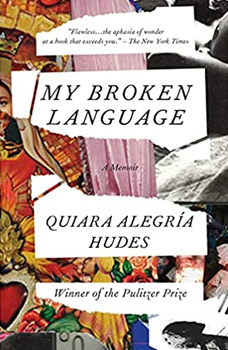
A Memoir
by Quiara Alegría Hudes
A Pulitzer Prize–winning playwright tells her lyrical story of coming of age against the backdrop of an ailing Philadelphia barrio, with her sprawling Puerto Rican family as a collective muse.
Quiara Alegría Hudes was the sharp-eyed girl on the stairs while her family danced in her grandmother's tight North Philly kitchen. She was awed by her aunts and uncles and cousins, but haunted by the secrets of the family and the unspoken, untold stories of the barrio—even as she tried to find her own voice in the sea of language around her, written and spoken, English and Spanish, bodies and books, Western art and sacred altars. Her family became her private pantheon, a gathering circle of powerful orisha-like women with tragic real-world wounds, and she vowed to tell their stories—but first she'd have to get off the stairs and join the dance. She'd have to find her language.
Weaving together Hudes's love of books with the stories of her family, the lessons of North Philly with those of Yale, this is an inspired exploration of home, memory, and belonging—narrated by an obsessed girl who fought to become an artist so she could capture the world she loved in all its wild and delicate beauty.
First published in April 2021; paperback reprint January 2022.
About the Author
Quiara Alegría Hudes is a playwright, wife and mother of two, barrio feminist and native of West Philly, U.S.A. Hailed for her work's exuberance, intellectual rigor, and rich imagination, her plays and musicals have been performed around the world. Hudes is a playwright in residence at Signature Theater in New York, and Profile Theatre in Portland, Oregon, has dedicated its 2017 season to producing her work. She recently founded a crowd-sourced testimonial project, Emancipated Stories, that seeks to put a personal face on mass incarceration by having inmates share one page of their life story with the world.
You can see the full discussion here. This discussion will contain spoilers!
Some of the recent comments posted about My Broken Language:
Do you agree that non-white citizens face more hurdles than their white counterparts?
Absolutely, we see it on a daily basis in the newspapers and on television. Growing up in a poorer section of my hometown with multi ethnic families as neighbors, I never gave it a thought as to how non-whites might have been treated differently. ... - caroln
How do you feel the Philadelphia setting functions as a character and how do you think the author relates to it?
As in Chicago, Philadelphia has segments of the city that are mostly inhabited by those of the same culture. It was natural for her to follow that which she was
comfortable. Seemed like a fun and festive environment in contrast to the more ... - susannak
How do you think "home" evolves for Quiara as the memoir progresses?
Home is where you are seen and heard and appreciated for who you are. Shouldn’t have to defend yourself. Unfortunately I believe her dad lost out. Her life ended up far richer due to the strong alliances and culture that was fostered by her ... - christinec
How do you think the reaction of other students influenced Quiara throughout her academic career? Were you bullied as a child? If so, how did it shape the person you became?
I was bullied as a teenager because I had psoriasis. It was really bad and really noticeable and other girls my age were horrible to me because of it. I was kind of a loner which made it even worse. The only good thing I can say about moving to Texas... - gaylamath
How does the title, My Broken Language, speak to the entire memoir?
At one fairly early point in the book, Quiara says "That gathering had been secular, this one was spiritual. And yet, a pulse is a pulse is a pulse. A drum is a drum is a drum. Yes, it was true and here lay the evidence: dance and ... - juliaa
"[A]stonishing...The fine-tuned storytelling is studded with sharply turned phrases... This heartfelt, glorious exploration of identity and authorship will be a welcome addition to the literature of Latinx lives." - Publishers Weekly (starred review)
"[E]legant and moving...A beautifully written account of the importance of culture and family in a small but powerful community." - Kirkus Reviews (starred review)
"Quiara Alegría Hudes is in her own league. Her sentences will take your breath away. How lucky we are to have her telling our stories." - Lin-Manuel Miranda, award-winning composer, lyricist, and creator of Hamilton
"Quiara Alegría Hudes is a bona fide storyteller about the people she loves—especially the women in her family who cook, talk, light candles, and conjure the spirits. Enormously empathetic and funny, My Broken Language is rich with unflinching observations that bring us in close, close, without cloaking the details. The language throughout is gorgeous and so moving. I love this book." - Angie Cruz, author of Dominicana
"Every line of this book is poetry. From North Philly to all of us, Hudes showers us with aché, teaching us what it looks like to find languages of survival in a country with a 'panoply of invisibilities.' Hudes paints unforgettable moments on every page for mothers and daughters and all spiritually curious and existential human beings. This story is about Latinas. But it is also about all of us." - Maria Hinojosa, Emmy Award–winning journalist and author of Once I Was You: A Memoir of Love and Hate in a Torn America
This information about My Broken Language was first featured
in "The BookBrowse Review" - BookBrowse's membership magazine, and in our weekly "Publishing This Week" newsletter. Publication information is for the USA, and (unless stated otherwise) represents the first print edition. The reviews are necessarily limited to those that were available to us ahead of publication. If you are the publisher or author and feel that they do not properly reflect the range of media opinion now available, send us a message with the mainstream reviews that you would like to see added.
Any "Author Information" displayed below reflects the author's biography at the time this particular book was published.
A Pulitzer Prize–winning playwright tells her lyrical story of coming of age against the backdrop of an ailing Philadelphia barrio, with her sprawling Puerto Rican family as a collective muse.
Those assigned this book will receive a print copy by mail.
The discussion forum for this book will be open from Jan 8 to about Feb 22.
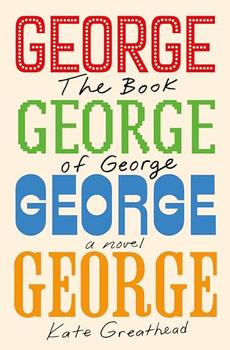
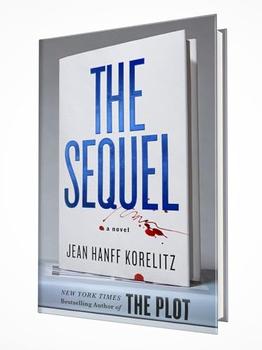
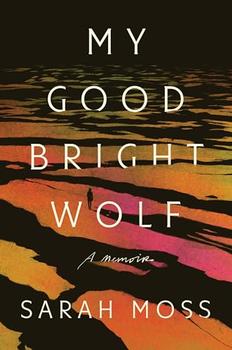
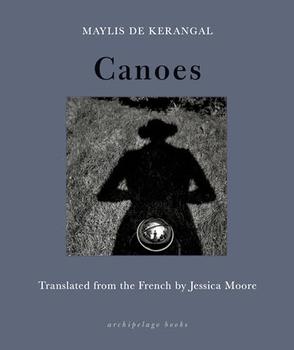
At times, our own light goes out, and is rekindled by a spark from another person.
Click Here to find out who said this, as well as discovering other famous literary quotes!
Your guide toexceptional books
BookBrowse seeks out and recommends the best in contemporary fiction and nonfiction—books that not only engage and entertain but also deepen our understanding of ourselves and the world around us.